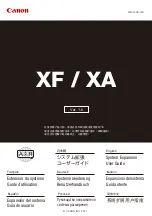
Table 2: Troubleshooting
LED indicator/fault pattern
Cause
Measures
Green LED does not light up or
flickers
No voltage or voltage below
the limit values
Check the power supply,
check all electrical connec‐
tions (cables and plug connec‐
tions)
Voltage interruptions
Ensure there is a stable power
supply without interruptions
Sensor is faulty
If the power supply is OK,
replace the sensor
Q-LED flashes yellow
Sensor is still ready for opera‐
tion, but the operating condi‐
tions are not ideal
Cleaning of the optical sur‐
faces. Perform teach-in again.
One of the two Q-LEDs do not
light up
The respective light beam is
interrupted
Remove object from light
beam
The optical surfaces are cont‐
aminated
Cleaning of the optical sur‐
faces. Perform teach-in again.
8
Disassembly and disposal
The sensor must be disposed of according to the applicable country-specific regula‐
tions. Efforts should be made during the disposal process to recycle the constituent
materials (particularly precious metals).
NOTE
Disposal of batteries, electric and electronic devices
•
According to international directives, batteries, accumulators and electrical or
electronic devices must not be disposed of in general waste.
•
The owner is obliged by law to return this devices at the end of their life to the
respective public collection points.
•
This symbol on the product, its package or in this document, indicates
that a product is subject to these regulations.
9
Maintenance
SICK sensors are maintenance-free.
We recommend doing the following regularly:
•
Clean the external lens surfaces
•
Check the screw connections and plug-in connections
No modifications may be made to devices.
Subject to change without notice. Specified product properties and technical data are
not written guarantees.
10
Technical data
WFZ
Laser class
I
8023382.14JZ | SICK
Subject to change without notice
11












































